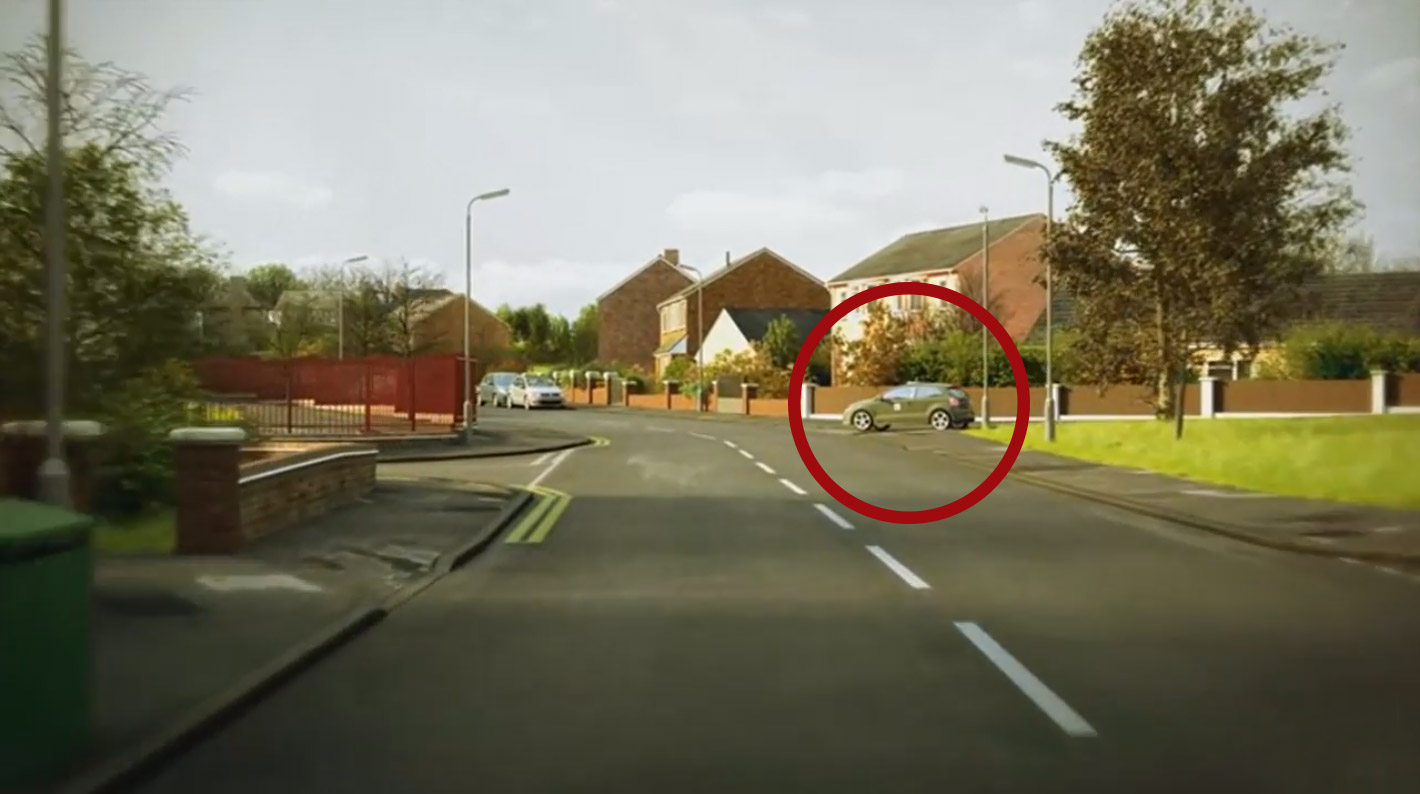

The Theory Test must be booked in advance, at or by calling DSA booking support on 0300 200 11 22. Good luck! And if you need to practice the Hazard Perception Test, you could use our award-winning Driving Test Success 4 in 1 App.Īt only £4.The learner must pass the Theory Test before booking their two-part practical motorcycling test.

if you click too many times, it will be detected and you will be given a score of zero. The algorithm can detect rapid, patterned or repeated clicking. This is intended to prevent people from passing by simply clicking lots of times.
MOTORCYCLE HAZARD PERCEPTION TEST ONLINE SOFTWARE
There is an anti-cheat algorithm in our Hazard Perception Test software (and in the DVSA’s official hazard test).
MOTORCYCLE HAZARD PERCEPTION TEST ONLINE FREE
Why not test yourself now with our FREE Hazard Perception CGI clip which uses cheat detection software - just like the official DVSA test!īeware of the Hazard Perception Test cheat detection system! Your final click is a long stop – and it might only score you 1 or 2 points – but in the event that your first two clicks were not successful, it will help to ensure you get at least SOME points for every hazard. You don't need to score 5 for every hazard, nor should you expect to! It probably won’t get you 5 marks, but it should get you at least 3. Think of the second click as a safeguard against the first click being ahead of the opening window. The second click may be the one that scores you 5, but more likely, it is going to score you 3 or 4 (unless you scored 5 with your first click – in which case it is simply ignored for scoring purposes). Well – there is a chance that with your first click, you will score 5 points but there is also a chance that you will score zero by clicking 100th of a second before the window opens. Why work like this? Read on to find out… What happens if I click too early for a hazard? If the “thing” you saw (and which you acknowledged with a click) DOES NOT continue to develop, then simply don’t click a second time.īy following these rules, you maximise your chance of scoring 4 or 5 points (that’s what the first click is for), at the same time as minimising the chances of scoring 0 points and/or being accused of having cheated (that’s what clicks 2 and 3 are for and why we recommend a maximum of 3 clicks for a developing hazard and a maximum of one for something that DOESN’T develop). You may want to click a third time if the hazard continues to develop and there is time to do so. You should click for anything that has the potential to develop into a hazard, and then click again a second time, if it DOES develop.

When I see a hazard, when should I click on the Hazard Perception Test? The sooner you learn to spot a developing hazard, the quicker you can react and avoid unnecessary action that could potentially cause a serious collision. Or, as in the image below, There's a cyclist coming out of a junction that will most likely join the road you're on.

A good example of a developing hazard could involve seeing a ball roll out across the road ahead of you that could potentially be closely followed by a young child.


 0 kommentar(er)
0 kommentar(er)
